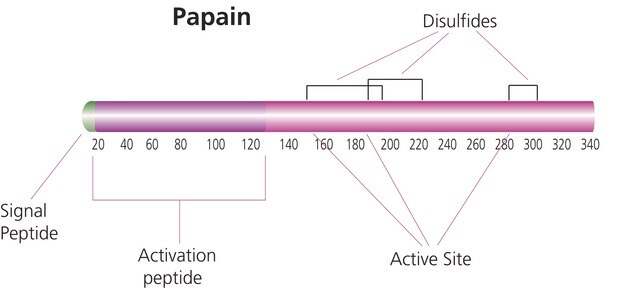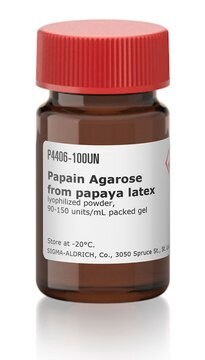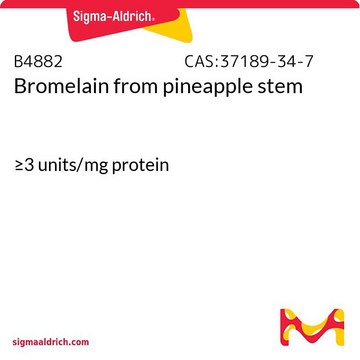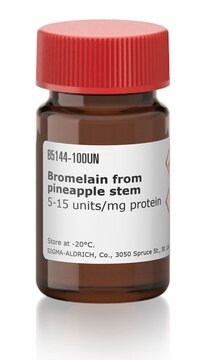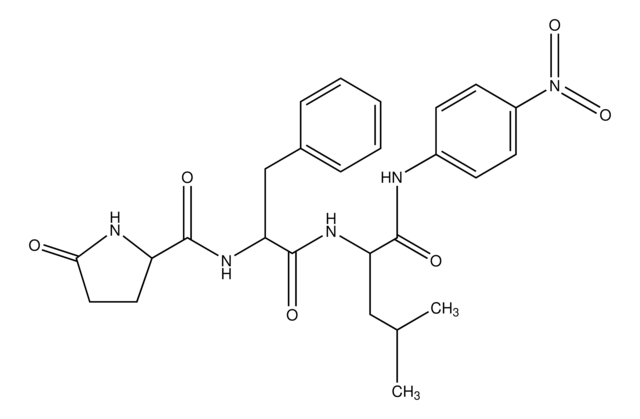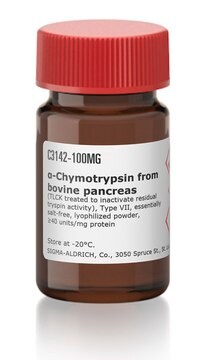P5306
Papain from papaya latex
lyophilized powder, aseptically filled
Synonym(s):
Papainase
About This Item
Recommended Products
biological source
papaya (latex)
Quality Level
sterility
aseptically filled
form
lyophilized powder
specific activity
≥8.0 units/mg protein
mol wt
23.4 kDa
solubility
H2O: soluble 1.2 mg/mL
storage temp.
−20°C
Looking for similar products? Visit Product Comparison Guide
General description
Application
Biochem/physiol Actions
pH optimum 6.0-7.0
Also hydrolyzes esters and amides.
Unit Definition
Preparation Note
Other Notes
inhibitor
substrate
Signal Word
Danger
Hazard Statements
Precautionary Statements
Hazard Classifications
Eye Irrit. 2 - Resp. Sens. 1 - Skin Irrit. 2 - STOT SE 3
Target Organs
Respiratory system
Storage Class Code
11 - Combustible Solids
WGK
WGK 1
Flash Point(F)
Not applicable
Flash Point(C)
Not applicable
Personal Protective Equipment
Regulatory Listings
Regulatory Listings are mainly provided for chemical products. Only limited information can be provided here for non-chemical products. No entry means none of the components are listed. It is the user’s obligation to ensure the safe and legal use of the product.
JAN Code
P5306PROC:
P5306-25MG:
P5306-25MG-PW:
P5306-PH:
P5306-BULK:
P5306-VAR:
Certificates of Analysis (COA)
Search for Certificates of Analysis (COA) by entering the products Lot/Batch Number. Lot and Batch Numbers can be found on a product’s label following the words ‘Lot’ or ‘Batch’.
Already Own This Product?
Find documentation for the products that you have recently purchased in the Document Library.
Customers Also Viewed
Articles
Papain is a cysteine protease of the peptidase C1 family. Papain consists of a single polypeptide chain with three disulfide bridges and a sulfhydryl group necessary for activity of the enzyme.
Our team of scientists has experience in all areas of research including Life Science, Material Science, Chemical Synthesis, Chromatography, Analytical and many others.
Contact Technical Service